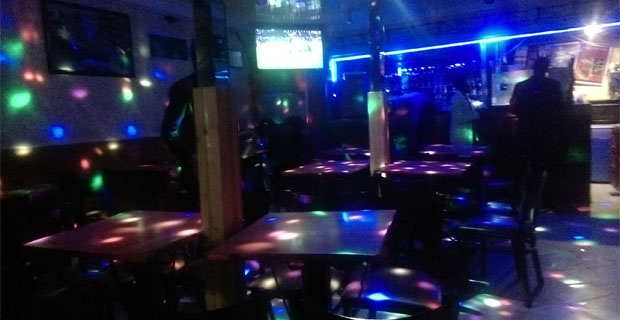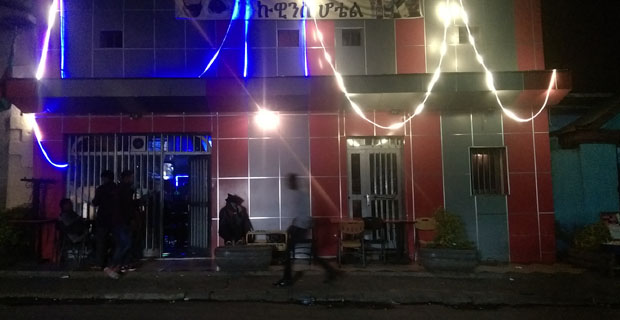Frangala
All Star
should have been done this. Other african countries would benefit greatly from this project
Bravo. Simple yet innovative. Congo Eloko Ya Makasi #243
Last edited:
should have been done this. Other african countries would benefit greatly from this project
should have been done this. Other african countries would benefit greatly from this project
Transport Corridors Have Improved Trade in Sub-Saharan Africa, but Issues Remain
Infrastructure improvements in the transport corridors of sub-Saharan Africa (SSA) have led to growth in the region’s international trade; however, these gains are partially offset by corruption and lack of regulatory oversight at customs checkpoints. For transport corridors to successfully foster trade in the region, SSA countries should continue to reform customs procedures. In fact, some researchers suggest that customs reform is just as important to facilitating trade and corridor performance in SSA as is the continued improvement of the region’s transport infrastructure.







Nigeria's UBA gets $150m loan from African Development Bank

Nigeria's United Bank for Africa (UBA) has secured a $150m loan deal with the African Development Bank (AfDB) to support infrastructure projects in Africa's top economy, the bank said on Thursday.
UBA said the credit line would also be used to support small and medium scale enterprises and businesses owned by women.
Nigeria is in its deepest recession in 25 years, brought on by low oil prices, which has seen foreign investors flee its financial markets, caused chronic dollar shortages and created risk aversion among local funds.
"The line of credit comes at an opportune time and would boost efforts at reducing the huge power sector financing deficit ... and complement our support to medium and small scale enterprises," said Kennedy Uzoka, UBA's chief executive.
The AfDB has provided liquidity to UBA in the past for trade finance and other lending activities, he said.
Nigeria's economic slowdown coupled with the currency crisis has impacted loan growth in Africa's most populous nation, frustrating businesses and households.
Nigeria's UBA gets $150m loan from African Development Bank | West Africa
Mohamed Yassin's minimarket occupies a prime spot in Khartoum but its shelves are largely empty as a plummeting currency and slew of subsidy cuts pushes prices up and customers away.
"Prices rise daily after the government decisions and what we sell, we can no longer completely replace because our capital is losing value," 44-year-old Yassin told Reuters.
"Sales have dropped significantly ... We don't know how long we can handle it. We're afraid we'll go out of business."
Inflation approaching 20 percent and government austerity have fueled growing discontent and rare protests in Sudan in recent weeks.
Protests have so far been small but, mindful of popular anger that swept away several Arab autocrats in 2011, the government of President Omar Hassan al-Bashir has been quick to silence media criticism over its handling of the crisis.
Sudan's economic problems have been building since the south seceded in 2011, taking with it three-quarters of oil output, the main source of foreign currency and government income.
Its revenues dwindling, the government began reducing fuel and power subsidies in 2013 and announced a new round of cuts in early November that saw petrol prices rise about 30 percent.
At the same time, Sudan has sought to alleviate a dollar shortage by introducing a second exchange rate alongside the official peg of 6.4 Sudanese pounds per dollar.
The so-called incentives rate allows the central bank to buy dollars from Sudanese expatriates for about 16 pounds and is meant to boost foreign currency flows into the banking system.
To reduce dollar demand and protect local industry, Sudan also banned imports of meat and fish and raised import tariffs on other goods. But the restrictions have fueled inflation in a country that relies heavily on imported goods.
"Life has become unbearable. Prices of vegetables, meat, sugar and transport are always rising and the government doesn't feel for us. We don't know what to do," said Fatima Saleh, 39, a state employee and breadwinner in a family of five.
GROWING DISCONTENT
As more Sudanese feel the pinch, unrest is growing. In the past week, Khartoum and other cities have seen rare protests.
On Wednesday, more than 150 lawyers held a sit-in in central Khartoum. Elsewhere in the capital, police used tear gas to disperse protesters who blocked a road.
A call by activists for three days of civil disobedience also meant the streets of Khartoum were much quieter than usual this week as some teachers, pharmacists and others stayed home.
Authorities have arrested four dissidents, closed a television channel and seized the print runs of four newspapers over the past week to silence criticism of reforms.
Government officials were not available for comment but Rabie Abdelati, a senior official in Bashir's ruling party, told Reuters the government had to scrap the consumer subsidies.
"The subsidy policies will result in a disaster and a burden on the economy," he said. "The call for civil disobedience failed because those who called for it were suspect and those who backed it have no political weight in the country."
The mounting crisis is taking place in an economy already hobbled by U.S. sanctions. Imposed in 1997 against a government accused of supporting terrorism, the sanctions were tightened in 2006 over Bashir's role in the Darfur conflict.
Companies struggle to obtain dollars from banks, which are barred by sanctions from receiving foreign transfers, forcing them to resort to the black market where rates are higher.
"Like all importers, we buy foreign currency from the black market in some Gulf countries – and it's sold at higher prices there than in Khartoum due to the U.S. sanctions that prevent transfers into Sudan," said a financial officer at a firm that imports agricultural products.
"We revise the prices of our products daily in relation to the price of the dollar ... we’ve been in business for many years but this is the most difficult period in our history."
LIMITED OPTIONS
The isolation of Sudan, whose president is wanted for war crimes by the International Criminal Court, limits its options.
Unlike neighboring Egypt, whose economic reforms helped it clinch last month a $12 billion IMF loan, Sudan is on its own.
Bashir's focus on bolstering his rule and fighting rebels in Darfur and elsewhere mean the economy has long been neglected.
Reliant on oil, Bashir's government was ill-prepared for the economic shock of southern secession and struggled to respond.
His critics argue that military spending is a drain on the budget and urge Bashir to make peace before cutting subsidies.
"The government must take serious steps towards cutting spending," said Mohammed al-Jack, professor of economics and political science at the University of Khartoum.
The hunt for new income has seen Sudan abandon its old ally Iran in recent years in favor of Saudi Arabia. But billions of dollars in Saudi investment have failed to turn the tide of economic decline felt most acutely among young Sudanese.
"I get 50 pounds a day ... but it's not enough for breakfast and transport," said Mohamed Ishak, 19, who works in a steel workshop. "Prices of everything have gone up ... but income is stable. I don't know what the solution is."
(This version of the story corrects name of senior official in Bashir's ruling party, paragraph 17)
(Additional reporting by Nadine Awadalla in Cairo; Writing by Lin Noueihed; Editing by Tom Heneghan)

